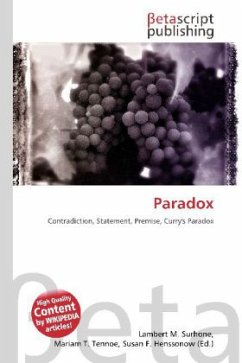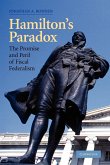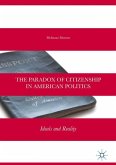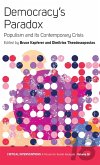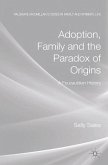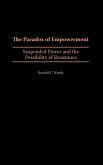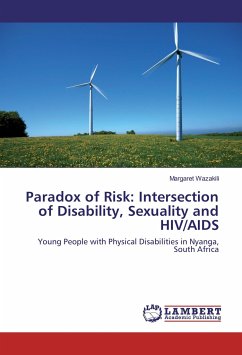Please note that the content of this book primarily consists of articles available from Wikipedia or other free sources online. A paradox is a statement or group of statements that leads to a contradiction or a situation which defies intuition. The term is also used for an apparent contradiction that actually expresses a non-dual truth (cf. k an, Catuskoti). Typically, the statements in question do not really imply the contradiction, the puzzling result is not really a contradiction, or the premises themselves are not all really true or cannot all be true together. The word paradox is often used interchangeably with contradiction. It is also used to describe situations that are ironic. But many paradoxes, such as Curry''s paradox, do not yet have universally accepted resolutions. Sometimes the term paradox is used for situations that are merely surprising. The birthday paradox, for instance, is unexpected but perfectly logical. The logician Willard V. O. Quine distinguishes falsidical paradoxes, which are seemingly valid, logical demonstrations of absurdities, from veridical paradoxes, such as the birthday paradox, which are seeming absurdities that are nevertheless true.
